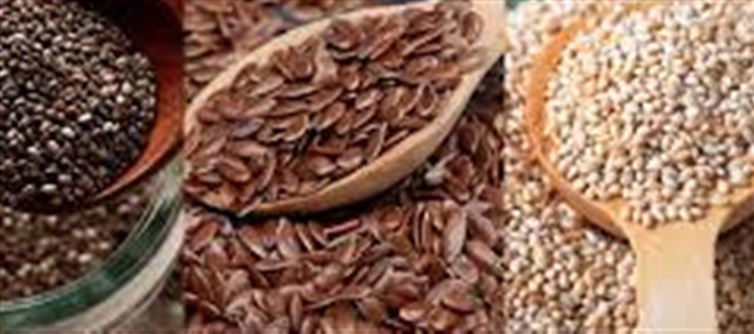
Seeds like chia, flax, and fennel may look tiny, but they pack a powerful punch of fiber, antioxidants, and essential nutrients. Recently, Harvard- and Stanford-educated gastroenterologist Dr. Saurabh Sethi revealed that the timing of when you eat these seeds can make all the difference for your digestion and gut health. Here’s what you need to know.
1. Chia Seeds – Best in the Morning
Chia seeds are rich in soluble fiber and omega-3s, which help keep you full and support bowel regularity. According to Dr. Sethi, the best time to consume them is in the morning. Adding soaked chia seeds to your smoothie, yogurt, or oats ensures a steady release of energy and promotes smooth digestion throughout the day.
2. Flax Seeds – Midday Energy Booster
Flax seeds are a great source of plant-based protein, lignans, and fiber. Eating them around lunchtime can aid digestion and reduce post-meal bloating. Ground flax seeds sprinkled over salads, soups, or chapati dough improve nutrient absorption and support healthy cholesterol levels.
3. fennel Seeds – After Meals for Digestion
Traditionally used as a mouth freshener in India, fennel seeds also act as a natural digestive aid. Dr. Sethi suggests having fennel seeds after meals to reduce gas, bloating, and indigestion. Their antispasmodic properties relax the gut muscles, making them perfect for easing discomfort.
4. Why Timing Matters for Seeds
Seeds are nutrient-dense, but eating them at the right time ensures maximum benefits. Morning chia supports energy and gut regularity, midday flax helps with metabolism and heart health, while fennel after meals improves digestion and comfort.
5. Easy Ways to Add Them to Your Routine
· Soak chia seeds overnight for a pudding or smoothie base.
· Roast and grind flax seeds to sprinkle over everyday meals.
· Chew a teaspoon of fennel seeds after lunch or dinner.
✅ Final Takeaway
Chia, flax, and fennel seeds are more than just superfoods — they’re time-sensitive gut health boosters. By consuming them at the right time of day, you can unlock their full digestive and nutritional benefits, just as Dr. Sethi recommends.
Disclaimer:
The views and opinions expressed in this article are those of the author and do not necessarily reflect the official policy or position of any agency, organization, employer, or company. All information provided is for general informational purposes only. While every effort has been made to ensure accuracy, we make no representations or warranties of any kind, express or implied, about the completeness, reliability, or suitability of the information contained herein. Readers are advised to verify facts and seek professional advice where necessary. Any reliance placed on such information is strictly at the reader’s own risk..jpg)




 click and follow Indiaherald WhatsApp channel
click and follow Indiaherald WhatsApp channel